Are Santorini earthquakes behind receding waters off Türkiye’s Aegean coastline?
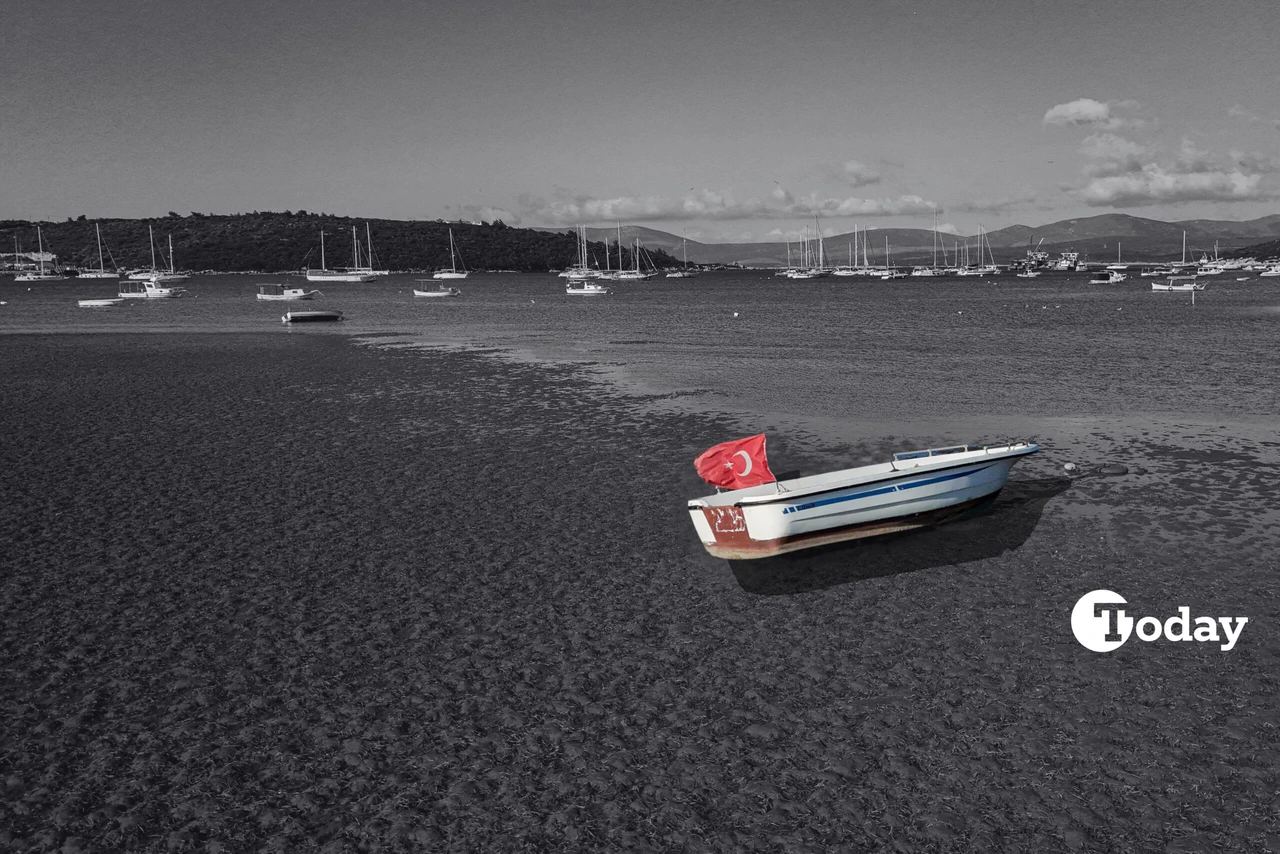 In Seferihisar, a district of Izmir, the sea water receded about 200 meters from the shore, due to the strong northeasterly winds, many fishing boats have been stranded on the land as a result of the water's retreat. (AA Photo)
In Seferihisar, a district of Izmir, the sea water receded about 200 meters from the shore, due to the strong northeasterly winds, many fishing boats have been stranded on the land as a result of the water's retreat. (AA Photo)
The Aegean region of Türkiye has recently experienced a significant natural phenomenon, with the waters along its coastline retreating dramatically. The event, which has caused alarm among residents and travelers, coincides with a series of Santorini earthquakes.
However, experts suggest that the causes of the water receding are linked to powerful winds rather than seismic activity.
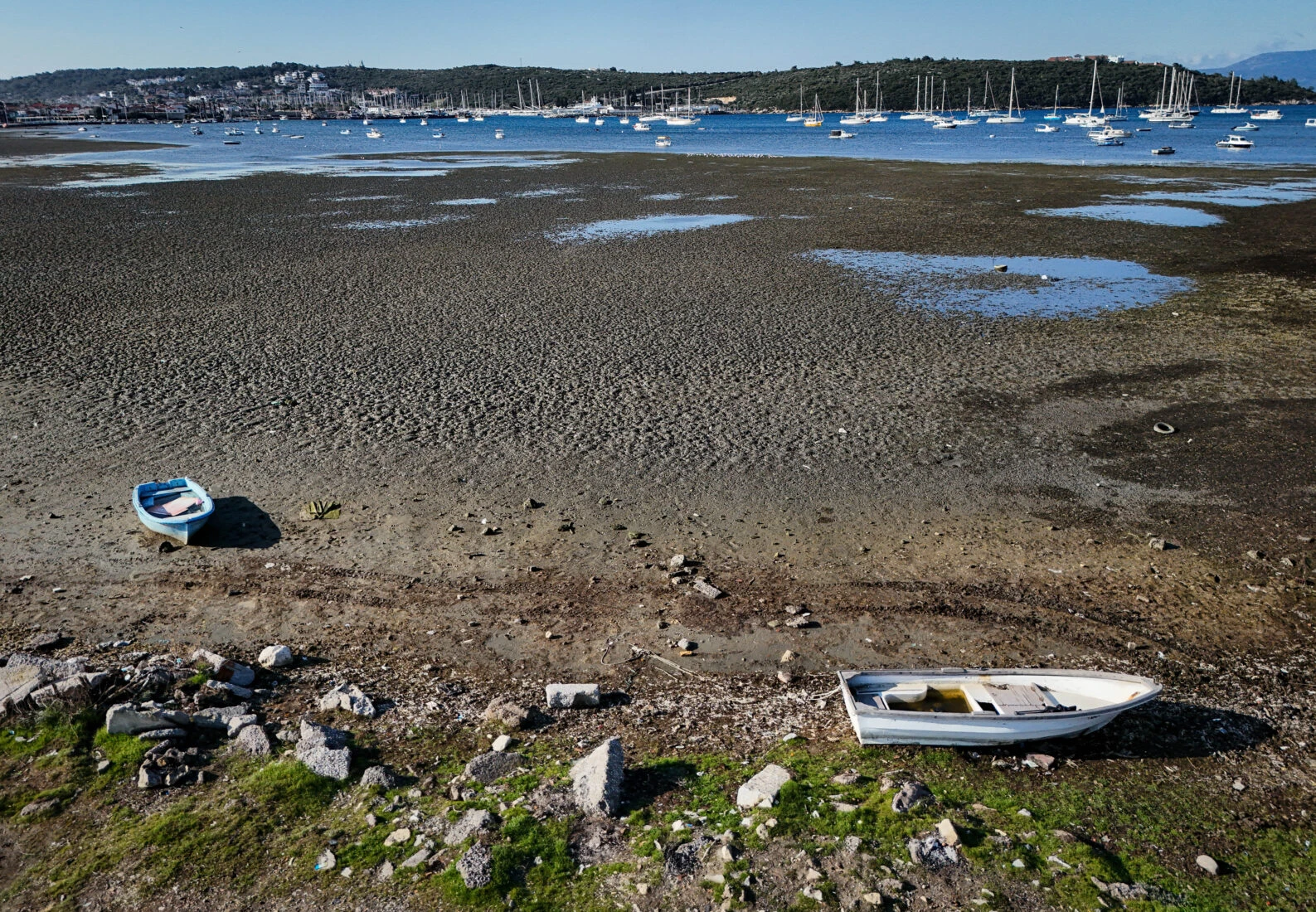
Strong winds impact the Aegean Sea
In Seferihisar, Izmir, the sea retreated by approximately 200 meters, leaving several fishing boats stranded on the shore. The powerful northeastern winds, known as poyraz, were identified as the main cause of this natural occurrence. Professor Dogan Yasar, a member of the Turkish Academy of Sciences (TUBA) and expert in environmental sciences, clarified that the phenomenon is completely unrelated to the recent Santorini earthquakes in the region.
“The wind has a significant impact on the sea level, and when the poyraz blows with great force, it causes the water to move southward towards Crete,” Professor Yasar explained. He noted that a similar retreat of water was observed in the area in 2022, though this year’s event was more intense.
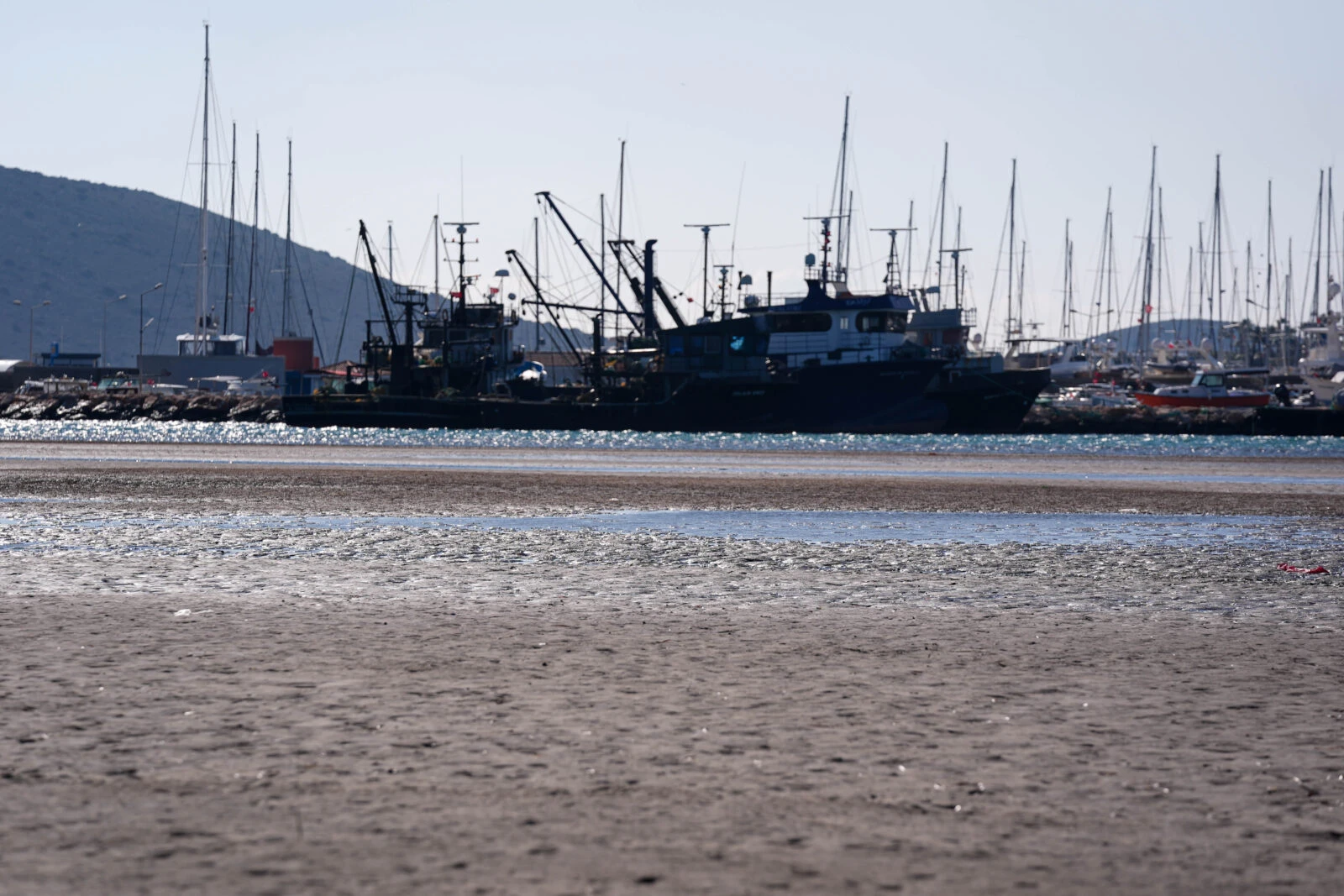
No connection to Santorini earthquakes
Experts across the region, including Professor Emre Ozsahin from Namik Kemal University in Tekirdag, have reassured the public that there is no cause for concern. Professor Ozsahin emphasized that this type of water retreat is a common occurrence in certain seasons, when winds blow in a particular direction. He stressed that this is a natural event and not related to seismic activity.
“We see these phenomena regularly, and there is no reason for people to panic,” Professor Ozsahin said. “It’s simply a meteorological event that occurs in certain months, especially when the winds blow from the same direction.”
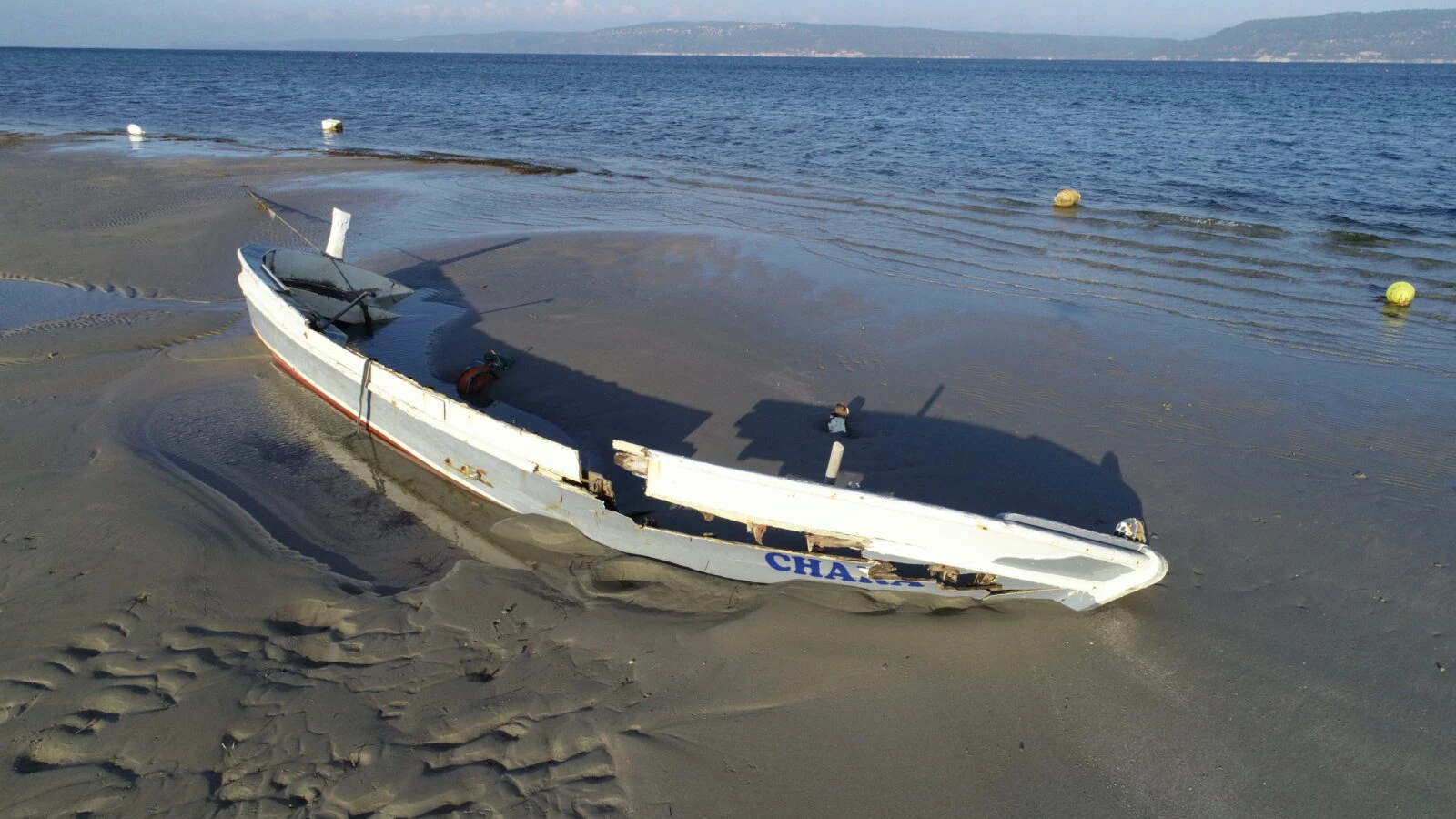
Local impact and scientific explanations
In other parts of the Aegean, including Tekirdag, Didim, and Cesme, similar water retreats have been recorded. In Tekirdag’s Suleymanpasa district, the sea withdrew as much as 5 to 10 meters, exposing rocky formations and even parts of a historic road known as the “Kral Yolu.”
The local community has been quick to document these unusual occurrences, although experts maintain that there is no reason to worry.
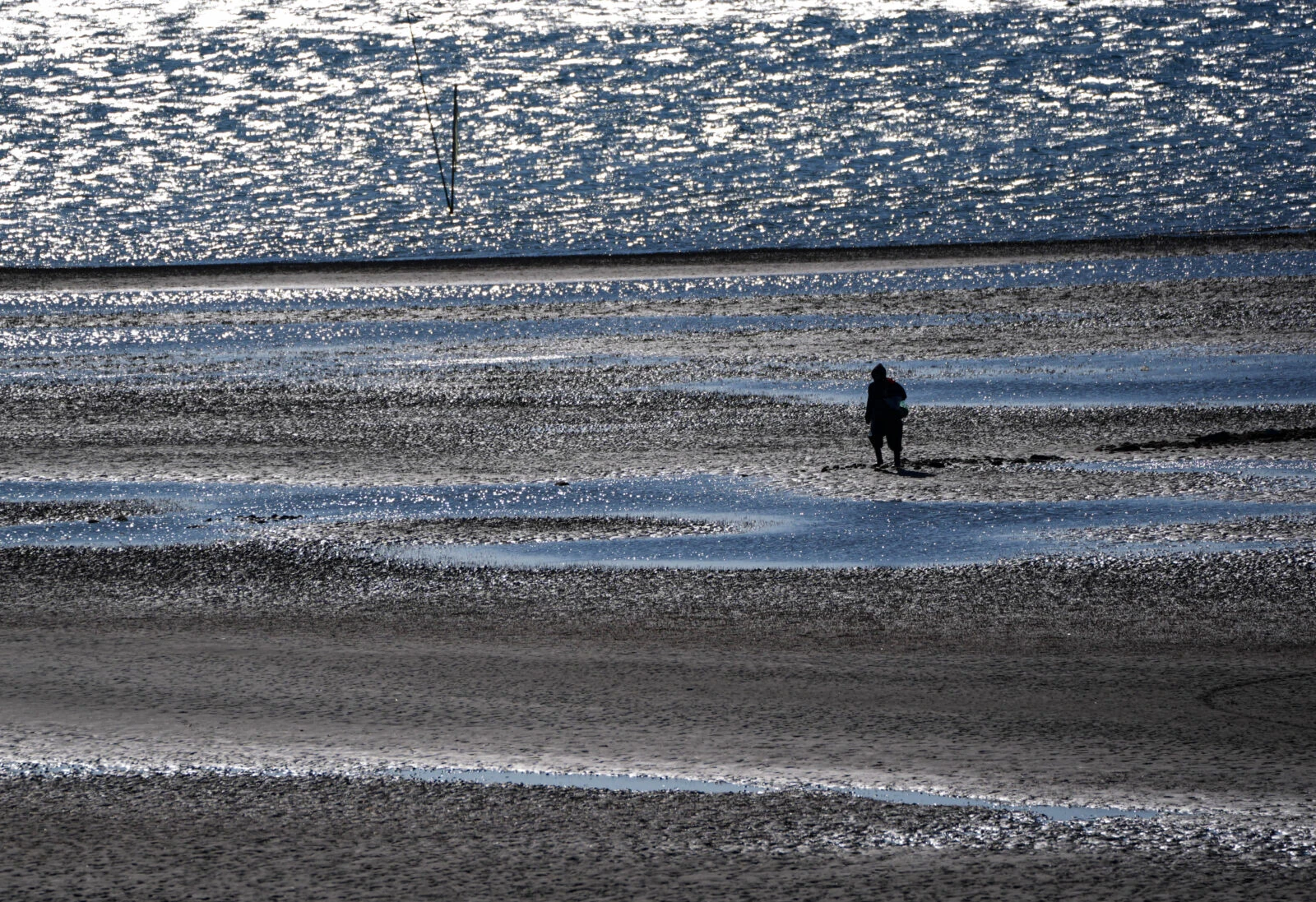
Professor Muhammet Turkoglu from Canakkale Onsekiz Mart University (COMU) also weighed in, pointing out that the retreat of the sea is a result of high atmospheric pressure combined with strong winds.
“The difference in sea levels between the Black Sea and the Aegean is one of the key factors that causes the water to move in this way,” Professor Turkoglu explained. He also refuted claims of a link between the Santorini earthquakes and the water retreat, emphasizing that the earthquakes are unrelated.
Experts continue to reassure the public that the water receding along Türkiye’s Aegean coast is a temporary natural event caused by meteorological conditions, not seismic activity. The powerful winds and atmospheric pressure play a pivotal role in the phenomenon, and the waters are expected to return to their usual levels once the winds subside.
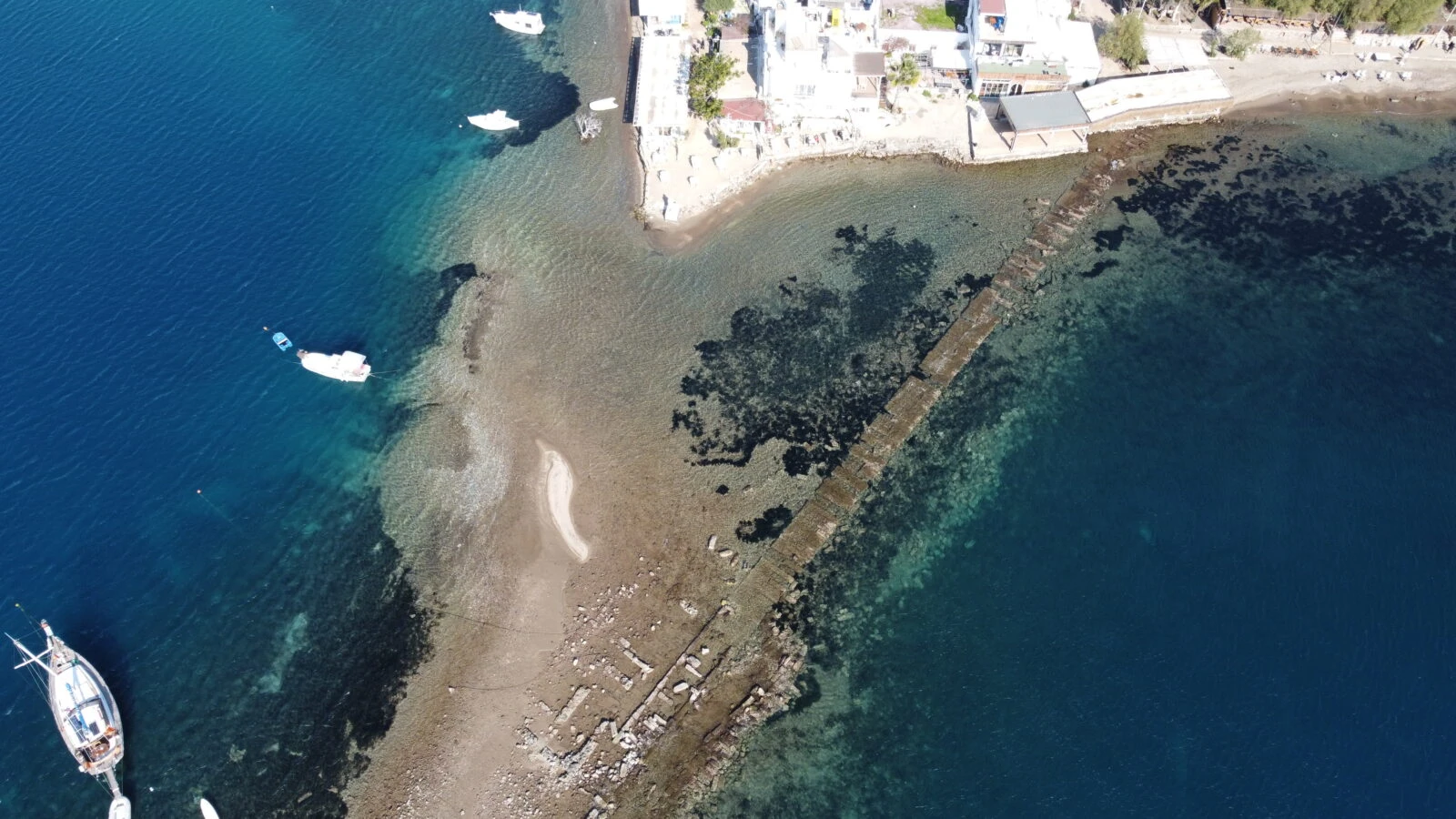
Historical landmarks revealed
In Bodrum, Mugla, the retreating waters revealed the historic city walls of Mydos (Rabbit Island), dating back to the fourth century B.C.
This rare occurrence has drawn the attention of locals and tourists alike, eager to witness the uncovered ancient structures. The retreating waters exposed the ancient ruins, allowing visitors to take photos of the city walls once submerged under the sea.



